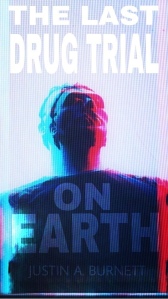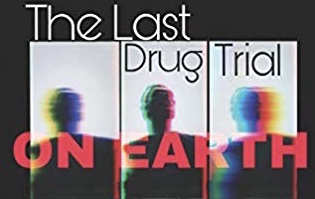by
Daulton Dickey.
I.
“It’s not a question of reality; it’s a question of our perceptions of these convergences we call ‘reality.’”
If you encountered the man who calls himself Buddha Jones on the street, you’d find little reason to acknowledge him. He’s one of those people who seem to blend in, nondescript in every way, almost generic in appearance.
He’s sitting on a bench in a park a few feet from Lake Michigan, gazing at seagulls. They hop in a sort of chaotic line dance. If they’re following a pattern, it’s indiscernible—at least to someone who doesn’t specialize in ornithology.
“They might be following a pattern,” Buddha says, “at least as far as they’re concerned. [Psychologist B.F.] Skinner found that pigeons will detect patterns even when none exist.” He hisses as he inhales smoke, then sighs as he pushes it out through his nose and mouth. “Those findings extend to people, by the way,” he says. “We’re pattern seekers, and we’ll sometimes find patterns that aren’t there.”
Buddha Jones is one of those people you might know for decades without pegging who he is, without pigeonholing him, without finding patterns, if you will, to enable you to discern cohesion in an otherwise aloof personality. His stories often contradict one another—his father died when he, Buddha, was in his thirties, for example, or he never knew his father; each story he tells, each facet of the life he chooses to share eventually emerges as either a creation or an exaggeration—or a combination of the two.
“People sometimes call writers professional liars,” he says. “That’s bullshit. Writers, and I’m talking about fiction writers here, make shit up, but there’s a difference between a lie and making something up.”
What’s the difference?
“Writing is algorithmic,” he says. “You follow a pattern, replace variables with values you’ve appointed. The point is to entertain or enlighten. Or trick.” He grins. “Or to shock or offend or whatever. To lie is to either avoid consequences, real world consequences, or to illegitimately obtain something, or someone, you want.”
But are the two behaviors mutually exclusive?
“Of course not,” he says. “But a writer sets out to tell a story, for whatever reason, or maybe to play with the notion of storytelling. Look, at the end of the day, a writer’s job is to emulate this hallucination we call ‘reality.’” He curls his fingers in air-quotes whenever he utters the word “reality,” something he never fails to do.
Why does he do that?
“I hate the word,” he says. “‘Reality.’ It misleads people.”
In what way?
“In my experience, people tend to assume ‘reality’ is this objective thing that exists independently of people, that we’re somehow passive participants in this thing we call ‘reality.’”
So then what is it?
“It’s a product of billions of neurons modeling an incomprehensible amount of information every second of every day. Each of us experience ‘reality’ differently because it’s ultimately a product of our brains.”
At this point I make a face without realizing I’d made it.
“You don’t believe me?” he says. “Drop some acid. Or drink some whiskey. These chemicals will literally alter how you experience ‘reality.’ If chemicals affecting your brain alter your experience of ‘reality,’ then isn’t it evidence that ‘reality’ itself is a product of experience?” After a long pause. “Which is itself a product of cognitive processes, of our brains?”
He had picked up a stick while we talked, and now he’s drawing the Mona Lisa in a patch of sand surrounded by grass. The picture would impress you: by utilizing nearby dirt, he shades the woman’s face, creating an almost three-dimensional picture, or a sepia etching.
On finishing the picture, which took only minutes, he tosses the stick aside and slides his boot—khaki work boots—over the picture, leaving tracers of a worn sole where a depiction of a woman’s face once lay. (more…)



 The state of popular fiction, especially mainstream “literary fiction,” in the second decade of the twentieth century is one of complacency and uniformity. It’s as though someone filtered the concept of fiction and literary fiction through a sieve, and homogeneity is all that largely remains.
The state of popular fiction, especially mainstream “literary fiction,” in the second decade of the twentieth century is one of complacency and uniformity. It’s as though someone filtered the concept of fiction and literary fiction through a sieve, and homogeneity is all that largely remains.


 should ridicule or satirize it.
should ridicule or satirize it.

 In an age of corporate omnipotence and adherence to formula, experimental fiction has fallen further into the gaps, obscured by the shadows of genre and ‘safe bets.’ Of the few experimental writers working today, D. Harlan Wilson embraces the shadows, creating works without pretense to genre or formulae.
In an age of corporate omnipotence and adherence to formula, experimental fiction has fallen further into the gaps, obscured by the shadows of genre and ‘safe bets.’ Of the few experimental writers working today, D. Harlan Wilson embraces the shadows, creating works without pretense to genre or formulae.


 about his books … actually, skip reading about them and just read them.
about his books … actually, skip reading about them and just read them.